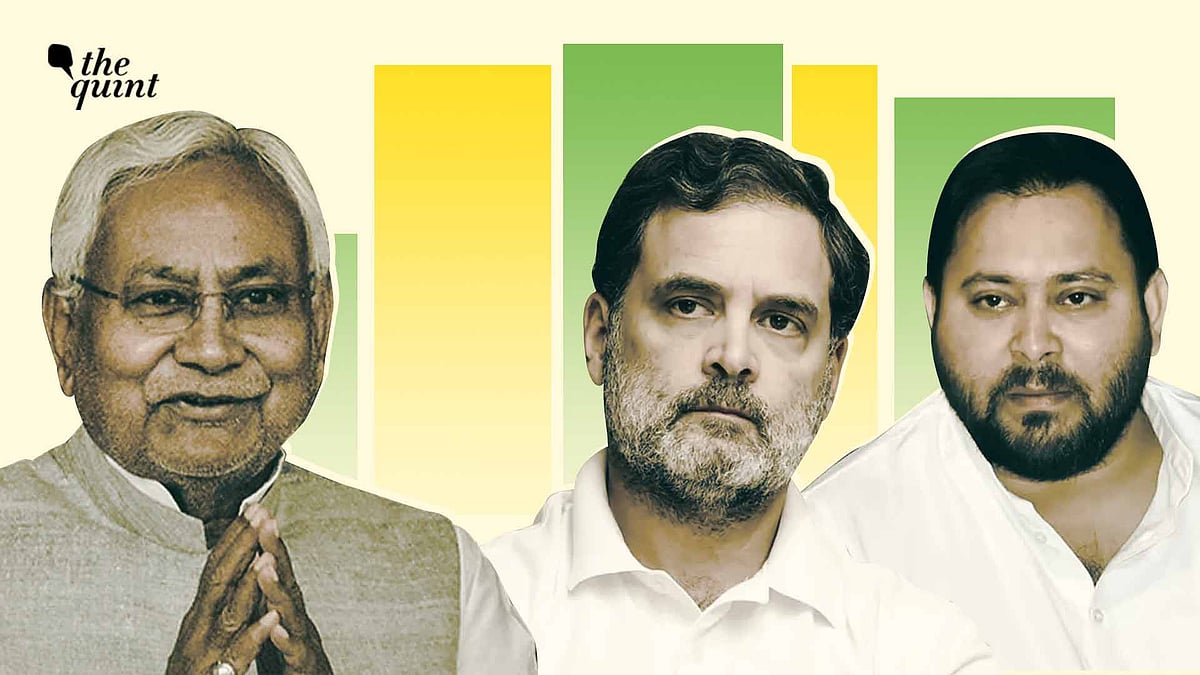
Bihar's Message to the Opposition: Talk Livelihoods, Not Just Claims of Rigging
The Bihar verdict is not mysterious. Livelihood concerns must return to the centre of the Opposition's imagination.

advertisement
The Bihar election results have generated intense discussion within the Opposition. Much of this conversation has revolved around alleged vote theft, the deletion of names from the voter list, and the Special Intensive Revision process.
These concerns are not trivial, yet they did not shape the political mood of Bihar in any decisive way. What mattered to voters was something far more fundamental and far more urgent. Bihar voted on the basis of livelihoods and the Opposition failed to anchor its campaign around that reality.
The National Democratic Alliance (NDA) succeeded in speaking to this world of lived experience. It projected stability, it highlighted welfare schemes and it sought to place itself alongside women’s collectives and poverty reduction efforts. Whatever the economic truth of these claims may be, the political message reached the ground.
Why Vote Chori Never Became a Mass Issue
The Opposition offered nothing comparable. In 2020, its campaign was far more closely aligned with livelihood anxieties. In 2025 that sharpness faded. Without a clear economic story, the Opposition was left with fewer ways to unsettle the NDA’s vote base or to energise new groups of voters. Livelihood concerns are not just another category of campaign issue. They are the foundation on which any possibility of large scale political mobilisation rests.
This is where the focus on vote rigging proved to be a strategic misstep. Allegations of vote theft may appeal to already engaged sections of the middle class but they rarely move the working poor. Voters struggling to find regular income do not reorganise their priorities based on contested accounts of fake votes or voter list manipulation.
The Opposition created a narrative that the BJP could easily flip in its own favour. If fake votes are the problem, the BJP argued, then the SIR process is the solution. That argument, even if flawed, had clarity. The Opposition’s position did not.
Organisation Requires More Than Complaints
The SIR exercise caused the deletion of millions of names from Bihar’s voter list. Many of those removed were migrant workers or members of economically vulnerable households who lacked the documents required to prove residence. This should have become a central political issue and it could have been framed as an attack on the rights of the poor.
Instead, the Opposition mixed it with a parallel narrative of fake votes being added. The combination created confusion. If the voter list is being inflated with bogus names, how are so many genuine voters disappearing? Which problem is larger? Who is responsible? Why should an ordinary voter connect their own life to this complicated story? The BJP offered a simple line that the list was being purified and many voters found that explanation easier to understand than the Opposition’s tangled message.
These are the issues that allow a political formation to build lasting trust and sturdy networks. By neglecting them, the opposition weakened its own structural capacity to challenge voter suppression.
The Real Lesson Bihar Offers
The Bihar verdict is therefore not mysterious. Voters responded to political actors who spoke about their everyday material struggles. They were largely indifferent to arguments about rigging because those arguments did not connect to their immediate lives.
The Opposition cannot afford to keep making the same mistake. Livelihood concerns must return to the centre of its imagination. Electoral manipulation must be located within a larger conversation about economic justice rather than treated as a standalone crisis.
Bihar has delivered a clear message: political credibility in India is earned through engagement with the real conditions of life. Until the Opposition recognises this and rebuilds its politics around the anxieties and aspirations of ordinary people, it will continue to lose ground in states where the battle is won not through technicalities but through trust.
(Yadul Krishna is a policy economist, associate at A&N Legal and a former fellow at Governance Innovation Labs. X: @yadul_krishna. This is an opinion piece. All views expressed are the author’s own. The Quint neither endorses nor is responsible for them.)
- Access to all paywalled content on site
- Ad-free experience across The Quint
- Early previews of our Special Projects
Published: undefined